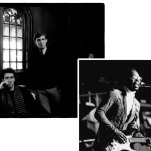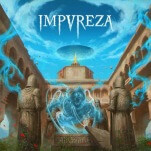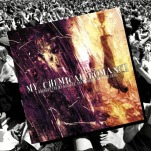Cease, Desist and Rock Out with a Different Band Name
Last month the world learned of The Singles, a new band featuring actress Scarlett Johansson and a few of her L.A. music pals. A few days later, the world learned of another band from L.A. who also called themselves The Singles and had been doing so for 15 years. Oops.
“Due to an unforeseen conflict with the band name, Scarlett Johansson, Holly Miranda, Kendra Morris and Julia Haltigan will be renaming the project and slightly altering the designs,” read a notice on the site of Federal Prism, the label issuing the single from The Singles who didn’t have a right to the name.
As we await this renaming, we look at bands who were either legally required or seriously compelled to alter their names after starting their careers, and how they dealt with it. We hope this will serve as sound advice for Ms. Johansson.
Option 1: Alter the name ever so slightly
FKA twigs
The name FKA twigs is somehow an appropriately enigmatic moniker for the chill electronic music that Tahliah Barnett makes. Seriously, how many people have you heard speak of FKA twigs who didn’t seem aware that FKA stands for “formerly known as”? Barnett was known as twigs until 2013 when a Chicago-based pair of alt-rock sisters who had been making music since the late ’90s as The Twigs pressed her to change it. When she came back with the FKA tacked onto the front, the sisters—Linda and Laura Good—sought a temporary restraining order from allowing Barnett to perform in the States, even with the FKA adjustment. Though the judge did not grant the order, the Goods may still pursue a lawsuit. This is a rare documented instance where the original act still publicly objects to the changed name.
Young Ejecta
When the electronic duo Ejecta received a cease-and-desist from a DJ who called himself Ejeca, members Leanne Macomber and Joel Ford appealed to fans to help with a new name. “The winner will receive copies of every Ejecta release past, present and future, access to live shows, merchandise, breakfast in bed, sex, first-born-sons and possibly more!” they wrote on their Facebook page. Hold up: Iceage and Ice Age can coexist, but Ejecta and Ejeca can’t? Macomber explained to the Dallas Observer that Ejeca “has a really good lawyer and we really don’t have the funds, sadly.” For the duo, the name Ejecta represents a character constantly undergoing rebirth, so adding Young to the front makes sense, and it’s an interesting contrast to the famous rappers who have actually dropped Young or Li’l from their professional names as they got older.
Santigold
Santi White started to receive acclaim for her 2008 debut as Santogold, and as such, she also received a cease-and-desist order and a so-bad-it’s-good song about the dispute by Santo Victor Rigatuso, the man who legally owned the right to call himself Santo Gold since the early ’80s. Choice lyrics of the song: “Don’t use my name to create your fame. Believe me, kid, this is not a game, cuz I’m the real Santo Gold…I don’t like my name being stole(d).” White decided to amend her moniker by changing one vowel so it reflected her real first name. Now when you type Santogold into a search engine you’ll likely get a “did you mean Santigold?” prompt. That’s got to smart for the real Santo Gold.
Death from Above 1979
This Canadian rock duo was originally just called Death from Above. But that was also what James Murphy of LCD Soundsystem called his record label. Sure, he shortened it to DFA after 9/11, but these two entities definitely knew of each other before singer and drummer Sebastien Grainger added his birth year as a suffix in 2005. Shortly after, Murphy said that he would have informally allowed the band to operate without altering the name, but the band’s label required Murphy to officially sign off on it, which he refused to do. “We spent a lot of money [on legal fees] because we didn’t just wanna be total fucking assholes and just say no,” Murphy told Pitchfork in 2005. “We were trying to find a way for it to actually work.”
The Fucking Champs
The metal instrumentalists who are now known as the Fucking Champs toyed with their name for five years until reaching their definitive moniker at the turn of the century. The first two releases listed the band as Champs and the next few listed the band as The Champs, but there was already a band called The Champs, who also played instrumentals, their most popular being Tequila. The older Champs pressured the younger Champs to change it up, so for one release the younger band employed a sort of hacker-speak moniker and stylized the name as C4AM95. See? It’s that numbers-as-letters thing that your aunt posts links about on Facebook, saying you’re highly intelligent if your brain can process it and read it. That stylization didn’t last long. For their 2000 album, IV, the band finally let their frustrations fly and arrived at The Fucking Champs, the classic name they would use for the remainder of their existence. Oh, how amazing it would’ve been if Scarlett Johansson and co. were to have chosen this solution and announced the very next day that they were The Fucking Singles.
Blink-182
Mark Hoppus and Tom DeLonge were in their early 20s, signed to a label called Grilled Cheese and playing in a band called Blink. Somehow an Irish band with the same name got wind of this and threatened to sue them if they didn’t change their name. This was in 1995: The most popular search engine was WebCrawler and we were a good decade away from Google Alert, so how did the Irish Blink even hear of these SoCal punks? Regardless, the band didn’t let all the small things get in their way, arbitrarily added the numbers 182 as a suffix and subsequently became way more famous than the other band in the blink of an eye.
The Verve
While most of the name-change stories inspire ire within hardcore fans of each act involved in the dispute, it’s hard to argue with the record label Verve here, objecting to a spacey Britpop band using the same one-word moniker that they had laid claim to in the 1950s. The label had been releasing albums from some of the greatest acts in the history of jazz (not to mention putting out the first two Velvet Underground records). Maybe Richard Ashcroft didn’t know Charlie Parker, but surely he knew of the Velvets, right? Legend has it that the band, who were notorious for their drug intake, briefly entertained the notion of renaming the band Verv and titling their next album Dropping E for America. Instead, they added a The in front and named the next album a similarly druggy (but not as dopey) No Come Down. A few years later, the band would go on to score their biggest hit, “Bitter Sweet Symphony,” which itself presented an entirely new set of legal hassles.
-

-

-

-

-

-

-

-

-

-

-

-

-

-

-

-

-

-

-

-

-

-

-

-

-

-

-

-

-

-

-

-

-

-

-

-

-

-

-

-








































